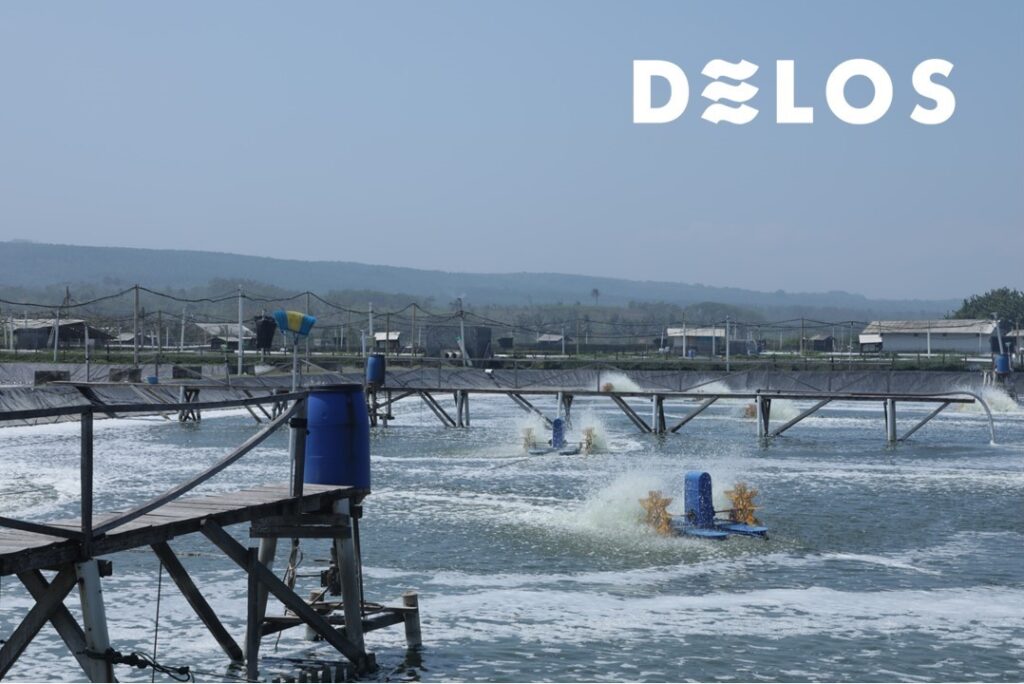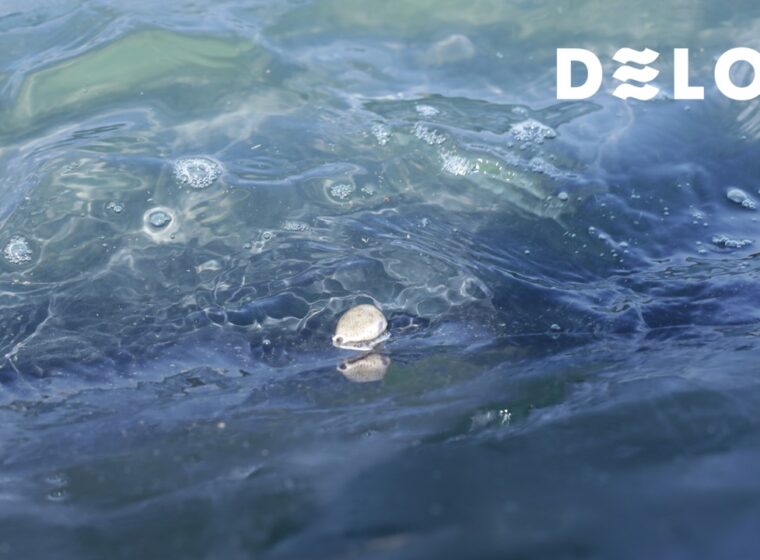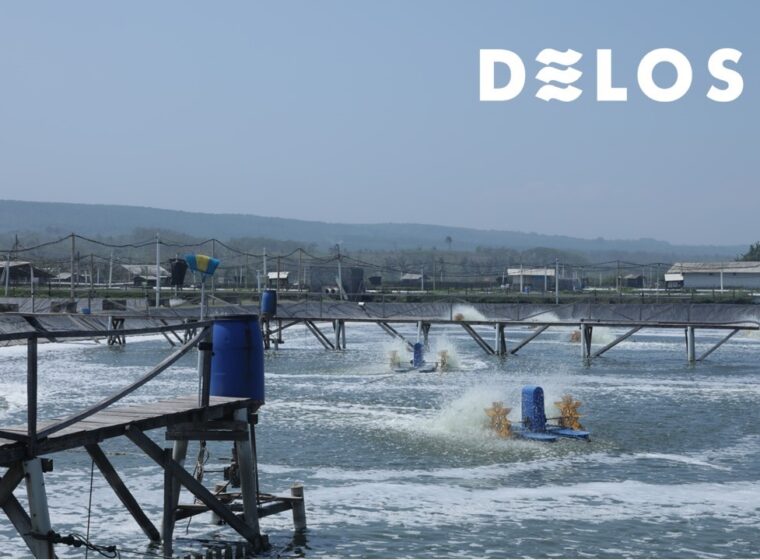
Shrimp farming has become an increasingly important industry in the aquaculture sector. To achieve optimal results, environmental factors affecting shrimp well-being must be carefully managed. The application of dolomite lime is one common treatment done to support pond productivity.
Dolomite lime becomes one important aspect of shrimp farming is maintaining proper water quality and pH. Various types of lime, including dolomite lime, play a significant role in this regard. Let’s explore further!
What Is Dolomite Lime?
Also known as calcium magnesium carbonate or CaMg(CO3)2, dolomite differs significantly from agricultural lime. Dolomite is a pure substance rich in calcium and magnesium, whereas agricultural lime only contains calcium used to address soil acidity. The presence of dolomite is crucial for cultivation success, especially in shrimp farming.
Dolomite is produced through a process known as dolomitization, which has a composition similar to limestone or calcite. The use of lime in shrimp farming also helps to address issues related to alkalinity, pH stability, and the breakdown of organic matter in cultivation media.
Dolomitic lime has high levels of magnesium and calcium, which can address various issues including soil acidity, soil toxins, soil porosity, and nutrient availability. In contrast, agricultural lime only contains calcium used to address soil acidity.
Also Read: The Importance of Minerals in Vannamei Shrimp Farming
Benefits of Dolomite Lime in Shrimp Ponds
The acidity level, or pH, plays a crucial role in the physiological stability and metabolism of shrimp. The recommended pH range for water in shrimp farming is between 7.8 and 8.5. Therefore, shrimp farmers must continuously maintain the pH range of shrimp pond water to remain in optimal conditions. One way to do this is by adding dolomite lime when necessary.
Dolomitic lime primarily functions to increase pH in both water and soil. The lime works by binding hydrogen ions (H), thereby reducing the acidity levels in water and soil. Lime can be directly added to water, sprinkled onto soil, or mixed into shrimp feed. Here are the details:
1. Increasing Alkalinity
The first benefit of dolomite lime for shrimp ponds is increasing the alkalinity of ponds that fall below the optimal threshold. The pond water’s alkalinity should ideally range between 130-180 ppm as it significantly influences pH stability.
An increase in alkalinity impacts pH control and calcium concentration. Adequate alkalinity can maintain pH fluctuations between morning and afternoon within the range of 0.2 to 0.5. pH changes should not exceed 0.5. Drastic changes can cause shrimp to go into shock and stop eating.
2. pH Stabilization of Water
A critical aspect of shrimp farming is maintaining the right water pH. Significant pH fluctuations can disrupt the biological balance in the aquatic environment and negatively impact shrimp health. Dolomite lime can be used to counteract pH fluctuations by acting as a pH buffer. It can bind the acids present in the water and prevent sharp drops in pH.
3. Providing Calcium and Magnesium
Dolomite lime provides a source of essential calcium and magnesium for shrimp growth and development. Calcium is vital for forming strong shells and exoskeletons, while magnesium is required in various biochemical processes within the shrimp’s body.
4. Accelerating Molting Processes
Dolomite lime treatment will provide a source of calcium that shrimp need during the molting process. The more frequently shrimp moult, the faster their growth. To support this, an adequate supply of minerals, especially calcium, is crucial. Calcium plays a role in the formation and hardening of new shrimp shells.
Dolomite lime can be applied by spreading it directly into the water or mixing it into shrimp feed. If added to feed, lime will increase the mineral content of the feed as a source of calcium to facilitate the shrimp moulting process. Adjusting the calcium-to-phosphorus (Ca/P) ratio in feed also contributes to the health of shrimp shells and feed efficiency.
5. Improving Water Quality
The addition of dolomite lime to shrimp farming ponds can help control heavy metal levels and toxins in the water. This helps maintain optimal water quality, which, in turn, supports shrimp growth and health.
6. Accelerating the Organic Matter Decomposition Process
The primary benefit of dolomite lime for shrimp ponds is to accelerate the decomposition process of organic matter, especially for ponds with soil that tends to be acidic. Soil acidity disrupts vital nutrient cycles.
In shrimp ponds, soil often becomes more acidic due to the accumulation of organic matter from leftover feed and shrimp metabolic waste (feces). This can lead to decreased productivity and environmental degradation. The process of organic matter decomposition also becomes suboptimal.
The dolomite lime application also serves as a solution for ponds with excessively murky water, indicated by low water clarity, which is an indication of excessive algae growth (blooming algae). Lime helps increase sunlight penetration into the water, thereby improving water clarity. Lime binds phosphate from water, especially through its calcium content, which limits the photosynthesis process of phytoplankton. As a result, water pH increases and carbon dioxide concentration decreases.
7. Algae Control
Excessive algae growth can lead to a decrease in water quality and disrupt shrimp well-being. Dolomite lime can help control excessive algae growth by reducing the availability of nutrients needed by algae.
Also Read: Understanding Sampling in Shrimp Farming and Its Benefits
Implementation in Shrimp Farming
The use of dolomite lime in shrimp farming should be based on regular water quality analysis. The amount of dolomite lime needed will vary depending on water conditions, pond size, and the shrimp species being cultured. It is important to collaborate with aquaculture experts or consultants to determine the appropriate dosage.
Furthermore, the use of dolomite lime should be integrated with sustainable farming practices. Efforts such as proper feed management, regular monitoring of water parameters, and responsible waste management will support the effectiveness of dolomite lime in maintaining a healthy farming environment.
Also Read: 5 Tips to Achieve Profitable Biofloc Vannamei Shrimp Farming
Profitable Vannamei Shrimp Farming with DELOS!
Dolomite lime plays a significant role in shrimp farming by controlling water pH, providing calcium and magnesium, improving water quality, and controlling excessive algae growth.
The proper and judicious use of dolomite lime can contribute to healthy and sustainable growth in the shrimp farming industry. For those looking to start environmentally friendly and scientifically researched vannamei shrimp farming, DELOS is the right partner for you.
DELOS is a leading aquatech company based on science, technology, and operational management. We can help you enhance the productivity of your shrimp ponds while practising sustainable and environmentally friendly shrimp farming. Our farm management is also integrated with the AquaHero app, making it easy for you to monitor pond conditions daily via your mobile device.
Contact DELOS at contact@delosaqua.com or click the WhatsApp icon on this page to connect with us directly. Elevate the productivity of your shrimp ponds with DELOS!




